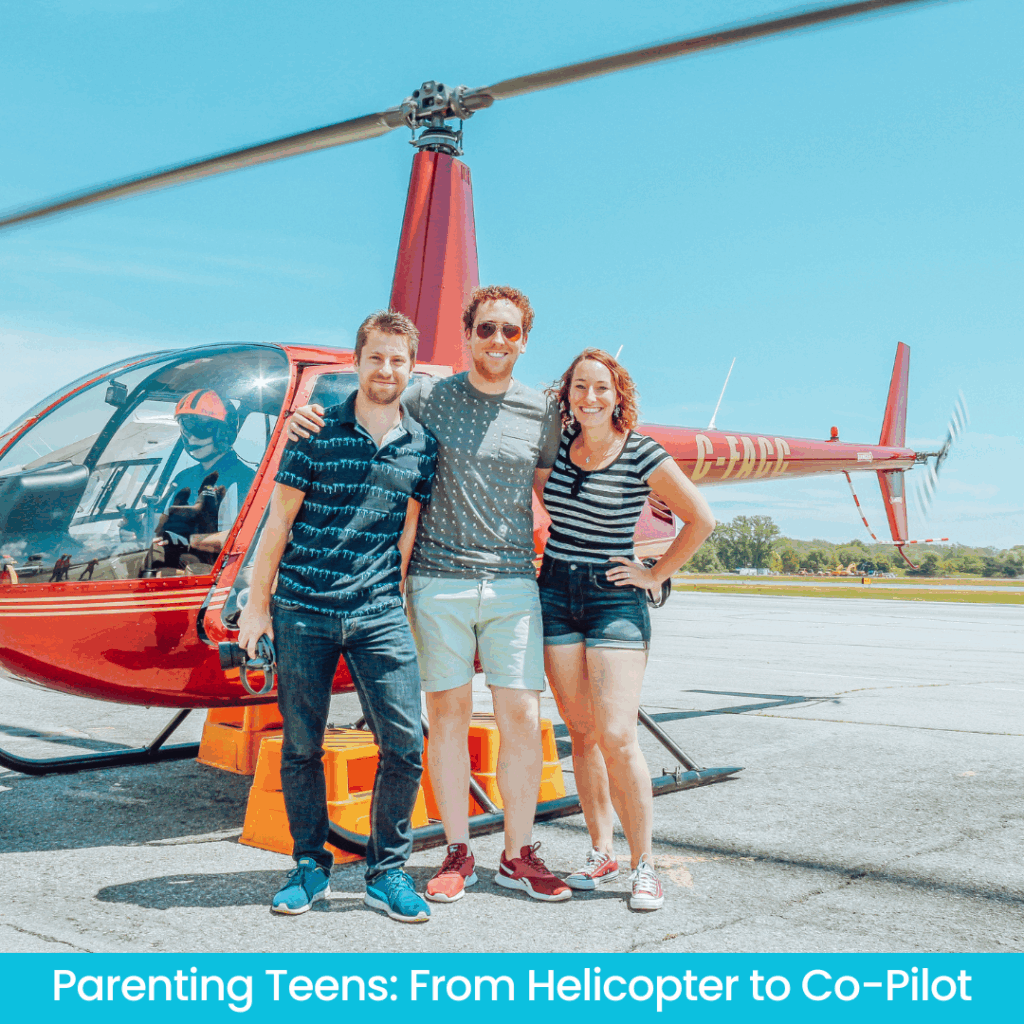As your teen enters high school or begins planning for life after graduation, your parenting role needs to evolve. You’re no longer in the driver’s seat—but you’re not out of the car either. Welcome to the co-pilot phase.
In this stage, your support is still crucial, but it looks different. You’re no longer managing every detail of their life. Instead, you’re coaching, encouraging, and stepping back—just enough for them to take the lead.
Let’s talk about what this shift looks like and why it matters.
🚁 Are You Helicoptering Without Realizing It?
Helicopter parenting happens when we hover—micromanaging academics, friendships, schedules, and decisions—in an attempt to protect or ensure success.
Common signs include:
- Checking their school portal daily
- Reminding them about every assignment
- Solving social or academic issues for them
- Reacting strongly to mistakes or setbacks
If this sounds familiar, don’t worry. It’s common, and it comes from a place of love. But it can also limit a teen’s ability to grow into an independent, confident adult.
🛫 The Co-Pilot Approach: Support Without Control
A co-pilot shares responsibility. You’re available. You give input. But you let them take the controls and make decisions—with you by their side, not hovering above.
Here’s how to embrace the co-pilot role:
1. Ask Questions Instead of Giving Orders
Try shifting from directives to prompts:
- “What’s your plan for the week?”
- “How do you want to approach this?”
- “What do you need from me right now?”
This encourages ownership and builds critical thinking skills.
2. Encourage Self-Advocacy
Help them navigate challenges—don’t take over. If they’re struggling with a teacher or need help at work, coach them on how to speak up and advocate for themselves.
Confidence grows when teens see they can handle things on their own.
3. Allow Low-Stakes Mistakes
Forget a deadline? Mismanage their time? These slip-ups are part of learning. Resist the urge to fix everything. Instead, help them reflect and improve for next time.
Mistakes today prepare them for bigger decisions tomorrow.
🗣 Communication Matters More Than Ever
Teens crave independence, but they still need connection. Your job is to shift how you communicate—not just what you say.
Try this:
- Listen more, lecture less. Teens are more likely to open up when they feel heard.
- Find low-pressure moments. Some of the best conversations happen in the car, while walking, or late at night.
- Be curious, not critical. Ask for their opinions. Respect their ideas, even when they differ from yours.
🔒 Trust + Boundaries = Growth
Letting go doesn’t mean anything goes. Teens need structure—but they also need to understand the “why” behind your rules.
Tips for healthy boundaries:
- Involve them in setting expectations (like curfews or screen time)
- Give them more freedom as they show responsibility
- Revisit rules as they mature and situations change
Boundaries teach respect. Trust builds confidence.
🌱 Why This Shift Matters
When you step into the co-pilot role, everyone benefits:
- Your teen learns to lead, decide, and recover from mistakes
- You reduce power struggles and increase cooperation
- Your relationship becomes based on mutual respect, not control
You’re not letting go completely—you’re letting them rise.
✈️ Final Thoughts
Parenting a teen isn’t about control. It’s about connection. It’s about preparing them for life outside your home by slowly giving them more say inside it.
They still need you. They just need you differently.
So sit in the co-pilot seat. Offer guidance, cheer them on, and trust that they’ll learn to fly—with you right there beside them when they need it most.
💬 Want more resources on parenting through high school and beyond? Subscribe to our newsletter or browse the latest posts.

